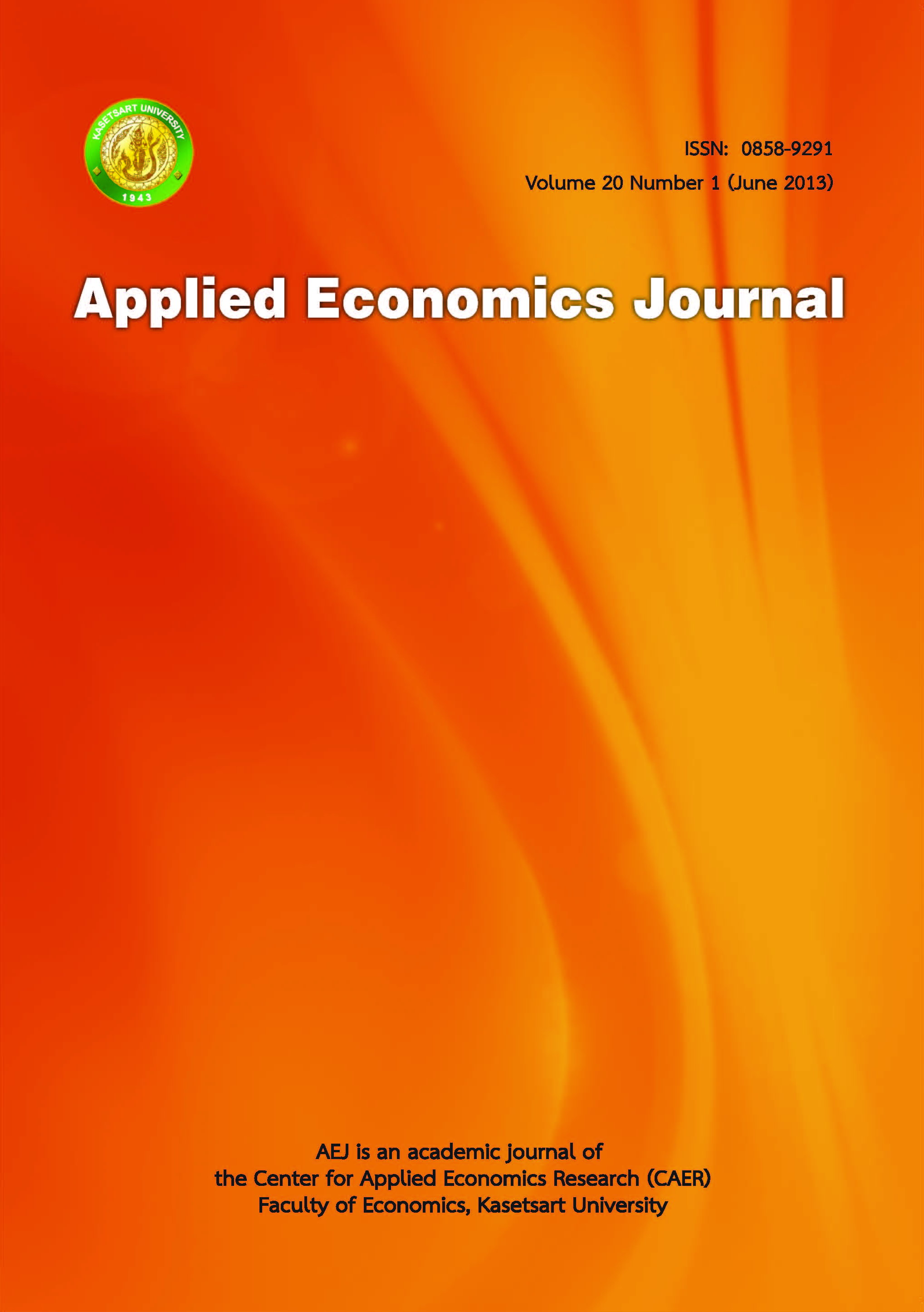บทวิเคราะห์ระบบการคลังปิโตรเลียมของประเทศไทย
Main Article Content
Abstract
บทคัดย่อ
บทความนี้วิเคราะห์ระบบการคลังปิโตรเลียมของประเทศไทยภายใต้ระบบสัมปทาน Thailand I และ Thailand III โดยคำนึงถึงการแบ่งส่วนรายได้ระหว่างรัฐและผู้ประกอบการ ความสามารถในการประกันส่วนแบ่งรายได้ให้แก่รัฐ และการสร้างแรงจูงใจให้แก่ผู้ประกอบการในการลงทุนและดำเนินงานอย่างมีประสิทธิภาพ ผลการศึกษาพบว่า การจัดเก็บรายได้ของรัฐภายใต้ระบบสัมปทานยังขาดความยืดหยุ่น เนื่องด้วยการใช้เครื่องมือทางการคลังเพียงชุดเดียว และไม่สามารถปรับเปลี่ยนตามลักษณะพื้นที่ของโครงการและผลิตภัณฑ์ที่สำรวจพบ ตลอดจนความไม่แน่นอนของราคาปิโตรเลียมและผลการดำเนินงานในแต่ละโครงการ อย่างไรก็ตาม ระบบการคลังปิโตรเลียมของไทยก่อให้เกิดการแบ่งส่วนรายได้ระหว่างรัฐและผู้ประกอบการอย่างเพียงพอ แต่การรับประกันรายได้ให้แก่รัฐยังไม่ดีนัก เพราะรัฐพึ่งพาแต่รายได้จากค่าภาคหลวงและภาษีเงินได้ปิโตรเลียมเป็นหลัก ประเทศไทยไม่ได้รับส่วนแบ่งกำไรมากนักเมื่อเปรียบเทียบกับประเทศเพื่อนบ้านที่ใช้ระบบแบ่งปันผลผลิต อย่างไรก็ตาม ระบบการคลังปิโตรเลียมของไทยสามารถสร้างแรงจูงใจให้แก่ผู้ประกอบการเข้ามาดำเนินกิจการ หากรัฐยังคงใช้ระบบสัมปทานต่อไป รัฐควรพิจารณาเพิ่มเครื่องมือทางการคลังโดยการเก็บ “ภาษีเงินได้เพิ่มเติม” ร่วมกับเครื่องมือเดิมที่ใช้อยู่ เพื่อเพิ่มส่วนแบ่งรายได้ของรัฐเพิ่มขึ้น
คำสำคัญ : ปิโตรเลียม, ระบบการคลัง, สัมปทาน, การจัดเก็บภาษี
Abstract
This paper analyzes the Thai petroleum fiscal regimes, so called Thailand I and Thailand III, under the concession system for granting petroleum exploration and production rights. The analytical issues include the sharing of benefit between the government and concessionaires, assurance of the government’s share of the profits, and the incentive for entrepreneurs to invest and generate efficient operation. The findings reveal that the Thai petroleum regimes are not flexible because only one set of fiscal instruments is applied. The regimes cannot be adjusted to either the context of project fields and operation or the uncertainty of petroleum price. However, the regimes could generate sufficient sharing of benefit although the share of government cannot be firmly assured. The Thai government revenue is based only on the royalty and petroleum income tax; it does not receive as much a share of the profit as the neighboring countries have been receiving under theirsharing systems, which is based on production and the project contracts granted according to types of petroleum and exploration as well as production areas. The Thai petroleum regimes, however, give enough incentive to investors. If the Thai government continues the concession system, it should consider applying an additional fiscal instrument, i.e. “supplementary income tax” to increase government revenue.
Keywords: petroleum, fiscal regime, concession, taxation
JEL Classification: H27, L71, Q32
Article Details
The paper is published under CC BY-NC-ND, in which the article is freely downloaded and shared in its original form non-commercially and its citation details are identified.


